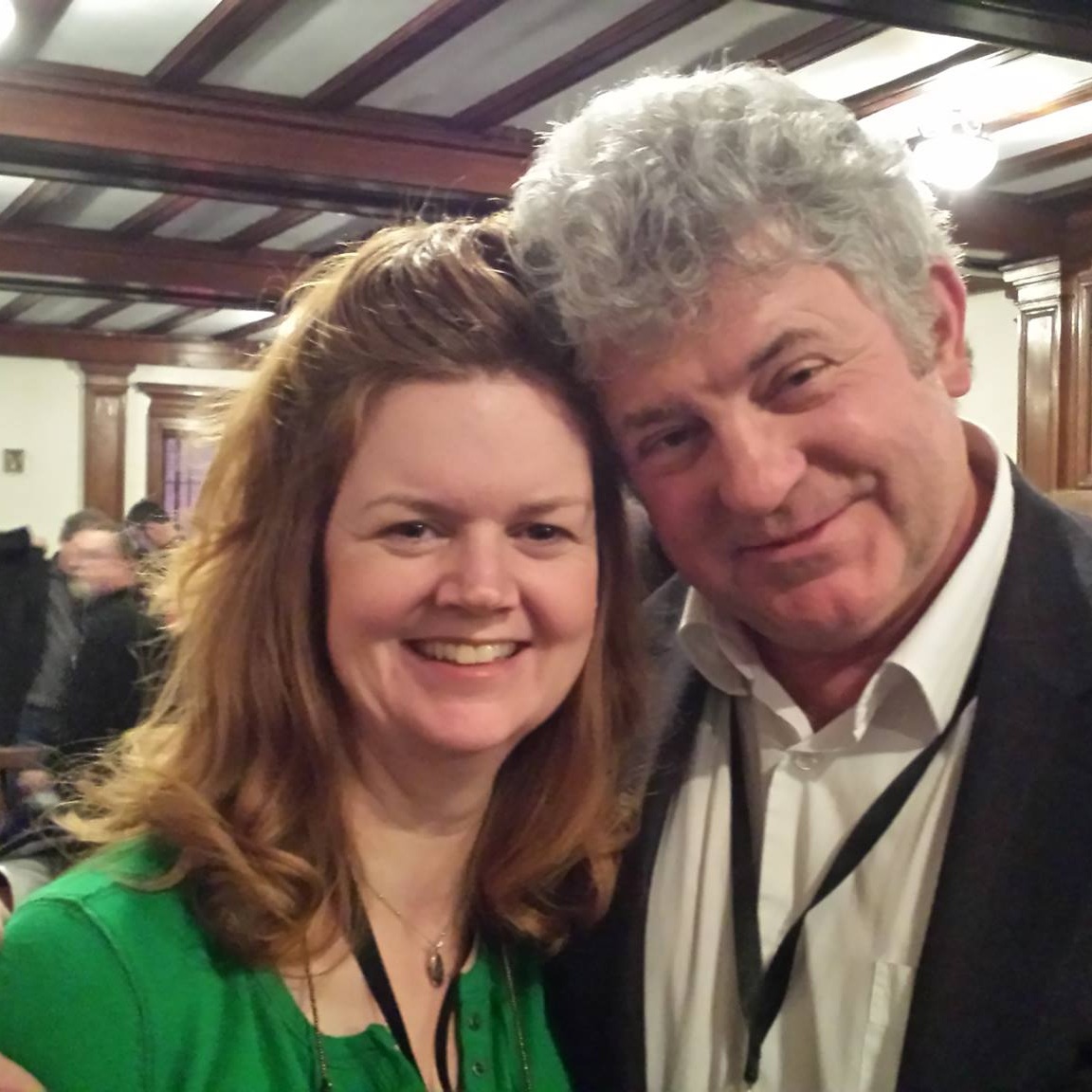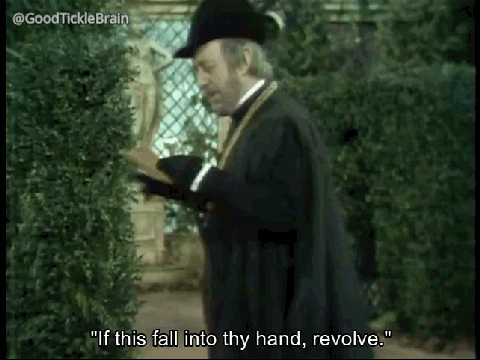The only trouble with living in Michigan is that almost all my Shakespeare friends are elsewhere. I live in a little Shakespeare-less bubble, connected to my fellow Shakespeare geeks only through social media, with no local Shakespeare community to turn. Or at least that was the case until Melinda Hall, a New York based Shakespearean, volunteered to connect me with Sam White, the founder and artistic director of Shakespeare in Detroit, a homegrown Shakespeare company just 40 minutes down the interstate from me.
A few days later I was selling my wares at a local artist festival when I got an e-mail from Sam saying she was coming to see me. Sure enough, a short while later Sam bounded up to my table and introduced herself, and I’ve been a huge fan of her ever since. I’ve since gone to see as many Shakespeare in Detroit productions as I’ve been able to, including their production of the Play On! Twelfth Night translation, and I am so excited to see them transition to a permanent performance space in the coming years.
I am totally in awe of Sam. She wears so many hats (administrator, producer, director, educator, artist, author, entrepreneur, the list goes on and on) that even just thinking about all the things she’s juggling at any one time makes my brain want to shut down. It’s an overused cliche to call someone your hero, but she truly, genuinely is one of mine.
Take it away, Sam!
1. Who are you? Why Shakespeare?
I am Sam White. Shakespeare because my momma told me so. My mother introduced me to the Bard when I was 8 years old and that was the catalyst of my life's work which has manifested Shakespeare in Detroit. Rap music was not allowed in our home but books and theatre were absolutely loved and shared by mother, and so I inherited my love for Will because of her insistence to have her children think outside of the confines of our neighborhood and family dynamics.
Mya interjects: So, a few months after I first met Sam, she was interviewed on local TV about Shakespeare in Detroit, and talked about how she was introduced to Shakespeare. I was surprised and delighted to see what she had decided to wear for the interview:
2. What moment(s) in Shakespeare always make you laugh?
I laugh at a lot of moments in Shakespeare. I think Henry IV Part 1 is fun and hilarious to read and watch because of the antics between Hal and Falstaff. I love friends who know how to give each other a hard time but also love each other through hard times.
3. What's a favorite Shakespearean performance anecdote?
Hmmm. I am not sure. I think I am always blown away by the fact that I thought the only people that would show up for Shakespeare in Detroit's first performance would be my mother and a couple of stray squirrels at Grand Circus Park. The fact that 500 people showed up to see a performance of Othello always amuses me and makes me really grateful.
4. What's one of the more unusual Shakespearean interpretations you've either seen or would like to see?
I think I find traditional Shakespeare to be unusual. I am a huge proponent for classical work being very classical and period. But I like a few modern surprises in the work I see. For example, Will would've have used modern music in his shows if he were working today and I try to do the same no matter how many corsets or doublets are onstage. I think not being aware of the tastes and accessibility for new audiences is quite unusual.
5. What's one of your favorite Shakespearean "hidden gems"?
Cymbeline is underrated. I love a story about a woman loving who she wants and defying the patriarchy. I feel you, Imogen.
Mya interjects: I knew there was a reason I liked Sam! Yes, Cymbeline is TOTALLY a hidden gem, and Imogen is the gem in that play.
6. What passages from Shakespeare have stayed with you?
“In peace there's nothing so becomes a man as modest stillness and humility; but when the blast of war blows in our ears, then imitate the action of the tiger." That's my mantra, currently. I pick my battles wisely in art and business. Being a black woman, leading a classical arts organization, can be stressful and you receive a lot of, let's say, opinions from the old guard. I've learned what to ignore and what to fight for.
Mya interjects: Let’s not mince words here. The Shakespeare world is white. While many institutions are working hard to change that, it remains very, very white. When I’m consistently one of the only people of any percentage of color in a room, you know you’ve got a problem. I can’t emphasize to you how important it is for me to have discovered Shakespeare in Detroit, a classical arts organization that is not only lead by a woman of color, but whose staff and company are more often than not over half people of color. Keep imitating the action of the tiger, Sam.
7. What Shakespeare plays have changed for you?
I used to love Othello. I still do and I'll probably produce it again soon. But in many ways I get traumatized by it. I often feel like an "only" in my own classical world and the language punches me in the gut nowadays.
8. What Shakespearean character or characters do you identify the most with?
Imogen. I live by my own rules. I create what I want to create. I love who and what I love. And even when folks try to take that away from me, I always find my way back. Things always work out in Divine order. I love that woman! I should also say, I identify with Falstaff a bit as well. I am quite sarcastic and silly and I won't turn down a delicious cocktail.
9. Where can we find out more about you? Are there any projects/events you would like us to check out?
You can find out more about me and my work at shakespeareindetroit.com. We have a lot up our sleeves and that's the best way to stay in touch with us. You can also tweet us at @shakesinthed or me @detroitsamwhite.
(Back to Mya) Sam didn’t even scratch the surface of all the stuff she’s done and is currently doing, so I’m just going to have to trumpet some of her awesomeness here for her.
Sam just directed the Utah Shakespeare Festival’s current production of Twelfth Night, which is running until September 7th.
Last year she was assistant director for the Stratford Festival’s production of The Tempest, and the year before that she was the Nicholson Arts Management Fellow at the Oregon Shakespeare Festival.
So, in case you’ve lost track, that means she’s worked at three of the biggest Shakespeare theatres in North America in the past three years, while simultaneously running Shakespeare in Detroit. NO BIG DEAL.
She’s also on the advisory board for Statera Arts, a foundation working to address gender disparity in the arts.
You can read more about Sam’s journey with Shakespeare in Detroit in this article from Forbes: Is Shakespeare the Key to Detroit’s Recovery? A interview with her also appears in Shakespeare Magazine, coincidentally right before an interview with me. We Michigan Shakespeare artists stick together!
There are also a lot more interviews with Sam, both video and print, on the Shakespeare in Detroit press page.
If you want to be cool, like me, you can support Shakespeare in Detroit on Patreon.
COMING NEXT WEEK: Two of my nearest and dearest Shakespeare friends and mentors: my Shakespeare Fairy Godfather and my indefatigable pocket dramaturg.
















